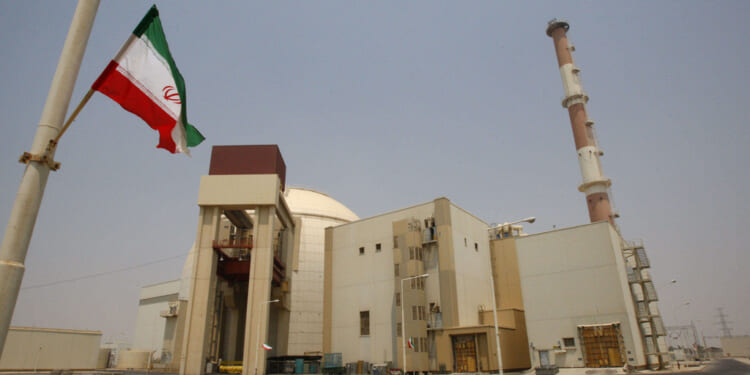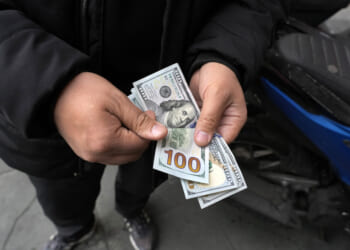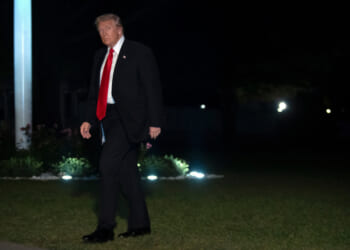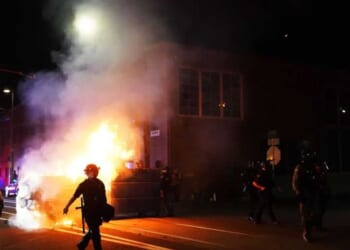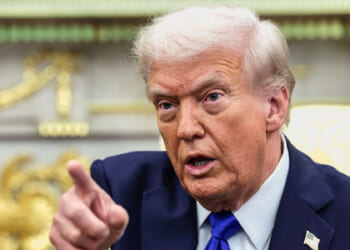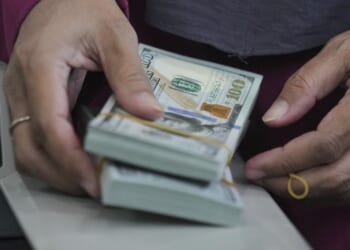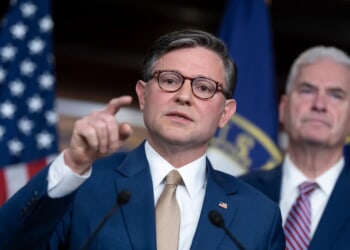Last week, President Donald Trump tried to patch over ICE’s forced deportation of more than 300 South Koreans readying a Hyundai battery plant in Georgia. He offered to let them stay and train Americans. But South Korean President Lee Jae Myung declined the offer and voiced hesitancy to invest further in the United States.
Meanwhile, halfway around the world, Trump downplayed Russia’s brazen 19-drone attack on Poland, suggesting it might have been a “mistake.” Polish Prime Minister Donald Tusk publicly rejected this characterization.
TRUMP’S ABANDONMENT OF UKRAINE FORESHADOWS AMERICA’S LOOMING ESTRANGEMENT FROM NATO
It’s easy to minimize these trials as normal alliance relations noise spikes. They’re not. They’re straws on the camel’s back of slipping relations, catalysts for these nations to act on their previous musings to go nuclear.
Among the top requests the South Korean president made in his August 25 White House visit was for South Korea to make its own nuclear fuel. Seoul already is cooperating with Bill Gates’s natrium fast reactor project, a plant originally designed to run on weapons-usable plutonium-based fuels. It now wants to recycle plutonium — a dangerous nuclear weapons-related activity.
South Korea has long been gaming to get its own nuclear weapons. In 2023, former President Yoon Suk Yeol even floated the idea of acquiring nuclear weapons, even though South Korea is a signatory to the Treaty on the Non-Proliferation of Nuclear Weapons (NPT). In 2021, he proposed to build nuclear submarines and enrich uranium to fuel them.
Making nuclear fuel, though, is the very not-so-peaceful nuclear activity that prompted our bombing of Iran. Might the White House nonetheless honor Seoul’s fuel-making requests? Trump told Lee Jae Myung he was open to discussing it.
What if Trump agreed and opened the door to South Korea going nuclear? For better or worse, Japan would have to follow suit. What then? Australia had a nuclear weapons program in the late 1960s. Taiwan had one too. Vietnam recently announced its intent to develop nuclear energy. Might they get nuclear weapons too?
Like Poland and Germany, whose leaders also have voiced an interest in acquiring nuclear weapons, these Pacific states are worried that America may treat its “ironclad” security assurances as it has with Ukraine.
What’s needed to dampen this nuclear proliferation kindling?
First, support America’s mutual security treaties with NATO, Japan, and South Korea as if they’re win-win propositions, rather than burdens. Certainly, if our allies go nuclear, they may go their own way even if — nominally — they maintain formal U.S. ties. America can hardly afford such alliance ambiguity if it intends to keep Russia, China, Iran, and North Korea on their heels.
Second, stop pushing the export of “peaceful” nuclear energy that is anything but. Reactors whose fuels can be quickly converted to make bombs should be dropped from America’s nuclear sales pitch. Fast reactors, which can easily be reconfigured to produce significant amounts of high-quality weapons plutonium, should be off its sales manifest, as well as other reactors that use dangerously-close-to-weapons-grade uranium.
Third, make Iran a nonproliferation poster child rather than simply a bombing target. The administration is right to call out Iran’s desire to make nuclear fuel as “enabling nuclear weaponization.” It needs to stick to this principled gun, particularly as it begins negotiating a nuclear cooperative deal with Saudi Arabia, which has demanded America help it enrich uranium. We shouldn’t.
Finally, although it is tempting to question the NPT’s value, the administration should try something different — enforce it. The place to start is Iran and its threats to withdraw from the treaty. If Iran, an NPT violator, is able to leave, as North Korea did, with impunity, others will follow this model. That could include South Korea, Japan, and NATO members.
IS IT POSSIBLE TO REPAIR AMERICA’S BRAND?
The alternative, of course, is to let go and bug out. Trump wants to make a deal with North Korea. He could do so, let South Korea confederate with the North, and encourage Seoul to go nuclear. In the short run, this might work. In the long run, it’s a prescription for nuclear chaos, starting with most of our key allies following Seoul’s example and going nuclear themselves.
None of this is necessary. The Trump administration has taken a sound, tough stance with Iran. It now needs to follow through to assure Iran won’t become a model for other non-weapons states to follow.
Henry Sokolski is executive director of the Nonproliferation Policy Education Center.

